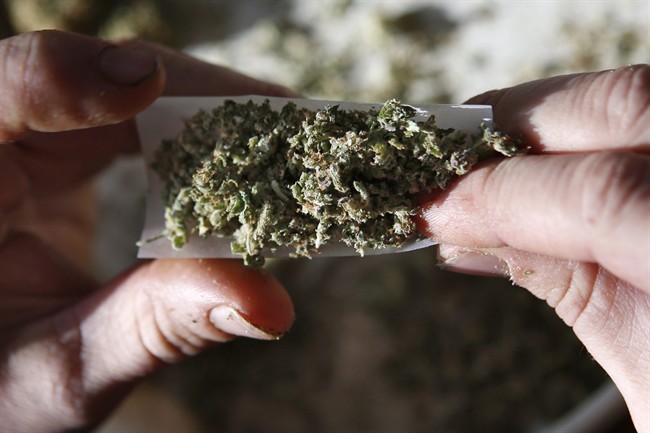Approximately 600,000 more Canadian may smoke marijuana – at least occasionally – when it’s legalized, a report published Tuesday by the Parliamentary Budget Officer predicts.

Prime Minister Justin Trudeau’s Liberal government has promised legislation to legalize recreational marijuana by the spring of 2017, and a distribution system could be in place by early 2018.
Cash-strapped provinces may be delighted at the prospect of something new to tax. But legal pot will have to compete with black-market pot, and that will keep prices – and taxes – down.
READ: Why the government can’t charge more than $10 a gram for legal pot
Pre-tax prices for legal recreational pot will be around $7.50 a gram, the report predicts, while illegal black-market pot now sells for about $8.80 a gram.
“When legalization occurs, the government may have little fiscal space to apply tax without pushing the price of legal cannabis significantly above the illegal market price,” the report warns – if governments try to squeeze too much revenue out of legal pot sales, users won’t be weaned from the illegal market.

Pricing decisions involve a difficult tradeoff – while governments may want to set a high price for marijuana to curb consumption (as with alcohol) or actively discourage it (as with tobacco) the black market will be waiting and offering pot smokers a lower price.
(On the other hand, the report identified a group of buyers in a study in Washington State who were willing to pay at least some level of premium to buy a legal product, for a variety of reasons – consistency, trustworthy information on labels, brand loyalty, “agreeableness of the buying environment.”)
As legal production reaches economies of scale, wholesale marijuana prices could fall, which creates room to raise more tax revenue. As well, high-quality, consistent edibles, which legal producers can make more easily, will be a strength of the legal recreational market.

It may be possible to tax edibles a little more aggressively than pot sold for smoking, since it’s hard for black market producers to make high-quality products, University of Toronto PhD student Jenna Valleriani told Global News in mid-October.
“It takes a lot of skill to be able to consistently dose one edible with exactly one gram. What usually ends up happening when amateurs make edibles is that you’ll have one cookie that’s like a bomb and the other one that’s very mild.”
The report predicts revenues from marijuana sales taxes to be “modest” in 2018, in the range of $600 million, most of which would go to the provinces. Excise taxes could raise that figure, but with the risk of being undercut by the black market.
(That figure isn’t far off the tax revenue that Colorado makes from marijuana, once you adjust for population and convert to Canadian dollars: $650 million.)
That would result in $42 million in new revenue for Alberta, for example, or $138 million for Ontario.
However, by 2021 a new group of pot users used to a legal market, ‘value-added products’ such as edibles and falling production costs may create the room to raise more tax revenue.
“Ultimately, no one knows exactly how legalization will impact the cannabis market,” the report cautions.
Last December, Prime Minister Justin Trudeau seemed to be managing expectations when he said that legalization was more about health and safety than developing a new revenue source.
A series of hikes on cigarette taxes in Canada in the 1980s and 1990s turned into an inadvertent economics experiment as a large black market in tobacco developed. In 1994, Ottawa bowed to the inevitable and cut tobacco excise taxes, but a black market in tobacco, connected to organized crime, continues to flourish.


Comments